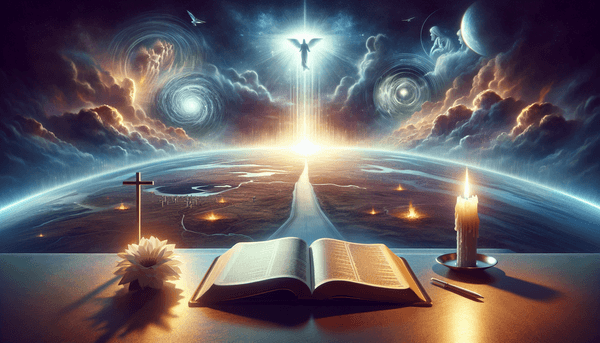The Rapture: A Divine Assembly in the Clouds
At the heart of some Christian eschatological views lies the rapture, an anticipated event where believers are said to be gathered to meet Christ in the air. This belief finds its scriptural moorings in passages like 1 Thessalonians 4:16-17, where the apostle Paul describes the Lord's descent from heaven and the subsequent 'catching up' of the faithful. While the term 'rapture' is not explicitly found in the Bible, its concept has been inferred from such texts. Other verses like Matthew 24:36-44, 1 Corinthians 15:51-52, and Revelation 3:10 contribute to the tapestry of rapture theology, each adding nuances to the debate over its timing and nature. The diversity in understanding the rapture is evident, ranging from pre-tribulation to post-tribulation perspectives, with some Christians altogether questioning the doctrine's biblical validity.
Being Left Behind: Tribulation and Trials
The flip side to the rapture narrative is the concept of those 'left behind,' a fate reserved for non-believers according to certain interpretations of prophecy. This idea is drawn from passages such as Matthew 24:40-41, depicting a scene where some are taken while others remain. The book of Revelation, particularly Revelation 3:10, is often cited as a promise of deliverance for believers from the coming global tribulation. The imagery of being left behind has not only theological implications but has also permeated popular culture, shaping the collective understanding of this eschatological view. However, the interpretation of such scriptures is far from unanimous, with various Christian traditions offering alternative eschatological frameworks that do not include a pre-tribulation rapture or the concept of being left behind.
The Holy Trinity: Unity in Diversity
The doctrine of the Holy Trinity, one of the most profound and mysterious teachings of Christian theology, posits that God exists as three co-equal and co-eternal persons—Father, Son, and Holy Spirit—yet remains one being. This concept of divine unity and distinction is not explicitly outlined in Scripture but is supported by a constellation of biblical texts. Verses like Matthew 28:19, which commands baptism in the name of the Father, Son, and Holy Spirit, and 2 Corinthians 13:14, which speaks of the grace of Jesus, the love of God, and the fellowship of the Holy Spirit, offer glimpses into the Trinitarian nature of God. The Trinity encapsulates the complexity of the Christian understanding of God's nature, a topic that has been the subject of theological contemplation and debate throughout church history. For further reflection on the biblical perspectives of life's challenges and the wisdom provided by Scripture, visit our exploration on divine guidance.
Conclusion
As we conclude this exploration of rapture, being left behind, and the Holy Trinity, we are reminded of the rich diversity of thought within the Christian tradition. These doctrines, while complex, serve as a testament to the faith community's engagement with Scripture and its implications for belief and practice. While interpretations may vary, the underlying search for truth and understanding unites believers in a common journey. As such, this discourse invites further reflection and study, encouraging each person to delve deeper into these profound theological concepts. For those who wish to expand their understanding, further insights into various biblical themes are available for exploration.
FAQ
Q: What does the Bible say about the rapture?
A: The Bible contains several passages that some Christians interpret as describing the rapture, particularly 1 Thessalonians 4:16-17, where believers are said to meet the Lord in the air. The concept is based on interpretations rather than explicit mentions.
Q: What does the Bible say about people being left behind after the rapture?
A: The idea of people being left behind is derived from passages such as Matthew 24:40-41, which discuss one being taken and the other left. It's a concept developed from interpretations of these scriptures.
Q: Is the concept of the rapture universally accepted among Christians?
A: No, the concept of the rapture is not universally accepted. It is subject to varying interpretations within Christian traditions, and some Christians do not believe in the rapture at all.
Q: How is the Holy Trinity explained in the Bible?
A: The Holy Trinity is described as one God in three persons: the Father, the Son, and the Holy Spirit. This is not explicitly detailed in the Bible but is supported by various scriptures, such as Matthew 28:19 and 2 Corinthians 13:14, which reflect a Trinitarian understanding of God.






